Frank Gehry is a Canadian-American architect, known for his characteristic postmodern design. His eccentric works are probably among the most iconic and distinguishable examples of contemporary architecture and design.
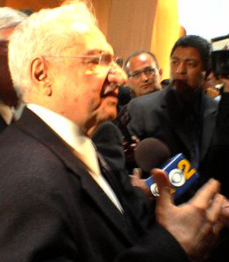
Image source: https://commons.wikimedia.org/wiki/File:Frank_Gehry_2006.jpg
Life of Gehry
Frank Owen Gehry, born Ephraim Owen Goldberg (born February 28, 1929, Toronto, Ontario, Canada), is a Canadian-American architect and designer renowned for his daring, art piece-like and more often than not “bizarre” designs,which earned him worldwide admiration.
During his youth, Gehry’s family immigrated to Los Angeles in 1947, when Gehry himself was only eighteen; there, he enrolled the University of Southern California (1949–51; 1954) to study architecture, later getting interested in city planning and entering Harvard University (1956–57). After graduation, he’d start working for several architectural firms, before, in 1962, enstablishing his own company, Frank O. Gehry & Associates, and precisely four decades later, 2002, rebuilding it as its own successor, Gehry Partners.

Image source: https://en.wikipedia.org/wiki/Frank_Gehry#/media/File:Frank_O._Gehry_-_Parc_des_Ateliers_(cropped).jpg
From furniture to buildings
Gehry started making a name for himself via a line of furniture called Easy Edges, and from there began to receive commissions for high-end design buildings, such as the Rouse Company headquarters in Columbia, Maryland, and the Santa Monica Place shopping mall.
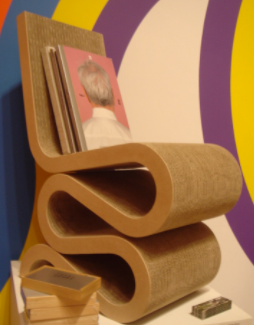
Image source: https://search.creativecommons.org/photos/13787f3a-d938-4641-9de6-034751762024 by ivanx
Gehry’s style may sometime seem unfinished or even crude, but his work is consistent with the California “funk” art movement spreading in the 1960 and early 1970, which featured the use of inexpensive, “found objects”, and non-traditional media – such as clay – to make art pieces.
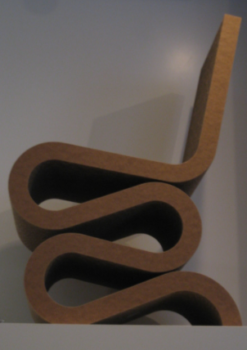
Image source: https://search.creativecommons.org/photos/46cbf628-8d11-4b5b-9d10-73f753d52750 by sheilaellen
Gehry has been called, among others, “the apostle of chain-link fencing and corrugated metal siding“. However, one must not take a reductive, solely (post) modern approach to Gehry’s work: a retrospective exhibit at New York’s Whitney Museum, in 1988, revealed his sophisticated, classical artist roots, knowledgeable of European art history and contemporary sculpture and painting alike.
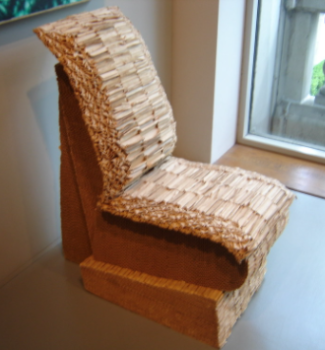
Image source: https://search.creativecommons.org/photos/db10723f-45a6-4e4d-b1f5-cdff78cf46a7 by wscottheath
Gehry continues to be one of the world’s leading contemporary architects, and due to his celebrity status, he has been referred to as a “starchitect“—a label that Gehry wholeheartedly rejects.
In a 2009 interview with the British newspaper The Independent, he explained why he dislikes the increasingly complex terminology associated with the prestige and fame, both for himself and his peers:
I am not a ‘star-chitect’, I am an ar-chitect: there are people who design buildings that are not technically and financially good, and there are those who do. Two categories, simple.
– Frank Gehry
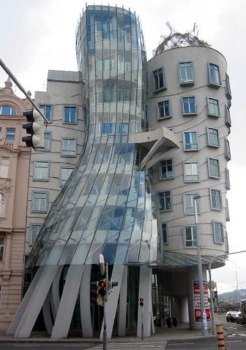
Image source: https://search.creativecommons.org/photos/9f46b56c-dcda-4fb6-a4dd-afb7ad3a9381 by budgetplaces.com
What are his major works?
- Gehry Residence (1991), Santa Monica, California.
- Binoculars Building (1991), Venice, California.
- Dancing House (1996), Prague, Czech Republic.
- Guggenheim Museum (1997) , Bilbao, Spain.
- Gehry Tower (1999), Hannover, Germany.
- Experience Music Project (2000), Seattle.
- Walt Disney Concert Hall (2003), Los Angeles.
- 8 Spruce Street (2006), New York.
- Serpentine Gallery (2008) Summer Pavilion, London.
- Neuer Zollhof (1999), Dusseldorf.
- Ray and Maria Stata Center (2004),Cambridge.
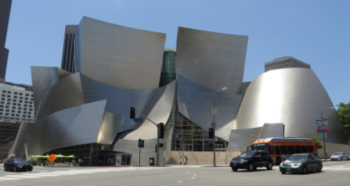
Image source: https://search.creativecommons.org/photos/b10ad602-5737-41f7-8a6d-d22f058e6185 by Ken Lund

Image source: https://search.creativecommons.org/photos/132ba7a1-834f-428b-a0d3-967a1a1c42dc by La Citta Vita
Info sources:
https://www.britannica.com/biography/Frank-Gehry
https://www.designingbuildings.co.uk/wiki/Frank_Gehry
